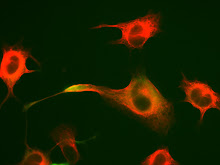 I've been ruminating on the arousing and personally-inspiring "I-It, I-You" Theory of philosopher Martin Buber:
I've been ruminating on the arousing and personally-inspiring "I-It, I-You" Theory of philosopher Martin Buber:"In I and Thou, Buber...worked upon the premise of existence as encounter. He explained this philosophy using the word pairs of Ich-Du and Ich-Es to categorize the modes of consciousness, interaction, and being through which an individual engages with other individuals, inanimate objects, and all reality in general...The generic motif Buber employs to describe the dual modes of being is one of dialogue (Ich-Du) and monologue (Ich-Es)...Buber argued that human life consists of an oscillation between Ich-Du and Ich-Es.
Ich-Du
Ich-Du ("I-Thou" or "I-You") is a relationship that stresses the mutual, holistic existence of two beings. It is a concrete encounter, because these beings meet one another in their authentic existence, without any qualification or objectification of one another. Even ideas do not play a role in this relation...Buber stressed that an Ich-Du relationship lacks any structure and communicates no information. Despite the fact that Ich-Du cannot be proven to happen as an event (e.g. it cannot be measured), Buber stressed that it is real and perceivable. A variety of examples are used to illustrate Ich-Du relationships in daily life - two lovers, an observer and a cat, the author and a tree, and two strangers on a train. One key Ich-Du relationship Buber identified was that which can exist between a human being and God. Buber argued that this is the only way in which it is possible to interact with God, and that an Ich-Du relationship with anything or anyone connects in some way with the eternal relation to God.
Ich-Es
The Ich-Es ("I-It") relationship is nearly the opposite of Ich-Du. Whereas in Ich-Du the two beings encounter one another, in an Ich-Es relationship... the "I" confronts and qualifies an idea, or conceptualization, of the being in its presence and treats that being as an object. All such objects are considered merely mental representations, created and sustained by the individual mind...Therefore, the Ich-Es relationship is in fact a relationship with oneself; it is not a dialogue, but a monologue. In the Ich-Es relationship, an individual treats other things, people, etc., as objects to be used and experienced. Essentially, this form of objectivity relates to the world in terms of the self - how an object can serve the individual’s interest." - Wikipedia
An another note, Wikipedia is improving my quality of life. Since reading Buber's wiki article two weeks ago, I've carried the Ich-Du in my heart. It's relaxing.




No comments:
Post a Comment